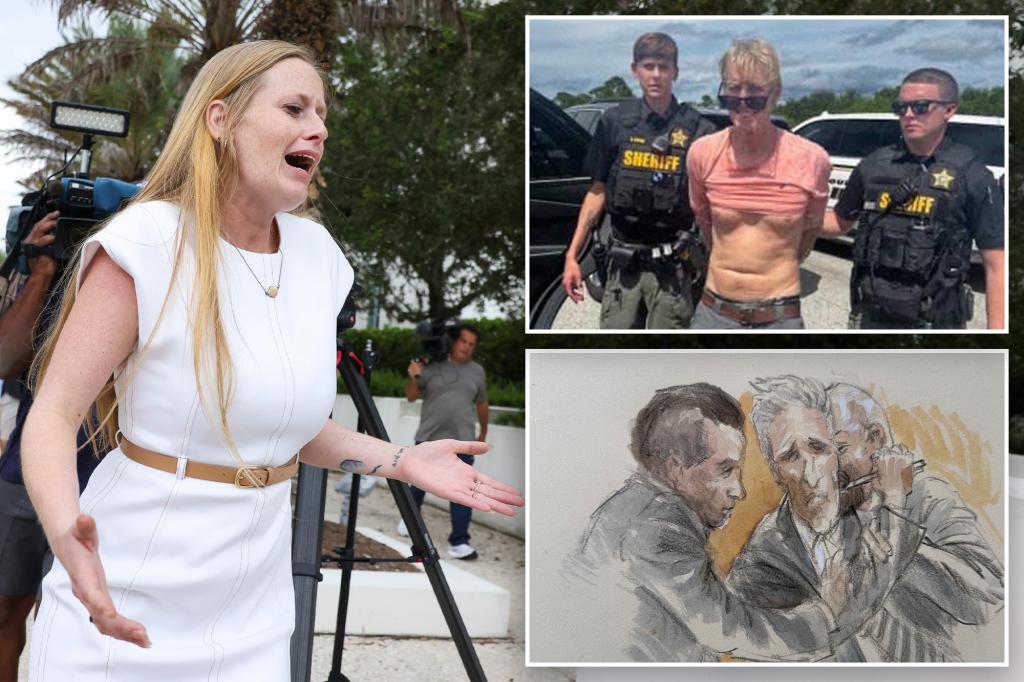Daughter’s Courtroom Outburst Follows Father’s Assassination Attempt Conviction
A family’s world shattered Tuesday when Ryan Routh, 59, was convicted on all counts related to his attempt to assassinate former President Donald Trump during the 2024 presidential campaign. The courtroom drama escalated beyond the verdict itself when Routh appeared to attempt self-harm with a pen, requiring intervention from U.S. Marshals, and his daughter Sara erupted in an emotional outburst that continued well beyond the courthouse walls. The conviction marked the culmination of a high-profile case that has highlighted the increasingly tense political climate in America and the devastating impact such actions have on families caught in their wake.
As the guilty verdict was read, the gravity of the situation seemed to overwhelm Ryan Routh, who had chosen to represent himself throughout the trial. In an apparent moment of desperation, he appeared to try stabbing himself with a pen multiple times before being physically restrained by four U.S. Marshals. The charges against him were severe: attempting to assassinate a major presidential candidate, assaulting a federal officer, and multiple gun violations. These convictions potentially carry a life sentence, effectively ending the 59-year-old’s life as a free man. For a defendant who maintained throughout the proceedings that his intentions were misunderstood, the finality of the judgment appeared devastating.
What followed was a raw display of a daughter’s anguish as Sara Routh stood up in the courtroom and unleashed her emotions before the jury and assembled observers. “Don’t do anything. I will get you out,” she called to her father, before her composure completely broke. “What the f—. F—. He didn’t hurt anybody. This is not fair. This is all rigged — you guys are a–holes,” she shouted, her words reflecting not just anger but a profound sense of injustice and helplessness. Her outburst captured the often-overlooked collateral damage of high-profile crimes – the family members who must somehow reconcile the person they know and love with actions deemed criminal by society, all while navigating their own complex emotions under intense public scrutiny.
Sara’s distress only intensified as she left the courthouse, where waiting media representatives became the focus of her continued outrage. “Go away” and “get the f— out of my face,” she demanded of reporters attempting to capture her reaction. In perhaps the most poignant moment of the day, as her father was transported away in a black SUV, Sara chased after the vehicle repeatedly shouting, “I love you” – a stark reminder that behind the headlines about attempted assassination and political violence was a family being torn apart. The contrast between the severity of Ryan Routh’s crimes and his daughter’s unwavering support illustrated the complicated reality that even those who commit terrible acts retain human connections and loved ones who struggle to reconcile their personal knowledge with public condemnation.
The confrontation with the media continued as Sara and her brother Adam walked to their car, with Sara’s emotional state clearly unimproved. When asked about her father’s wellbeing, her response was both protective and threatening: “He better be or everybody’s f–king dead… You can all go to hell. It’s all y’all’s fault. F–king lies. Spreading lies about my f—ing father.” These words, while troubling, reflected the psychological burden placed on family members of high-profile defendants – caught between defending someone they love and acknowledging the gravity of their actions, all while processing their own shock, grief, and anger. Throughout the outburst, Adam Routh appeared to remain the calm counterbalance to his sister’s emotion, quietly guiding her to their vehicle and asking reporters to clear a path as they departed.
This courthouse scene represents far more than just the aftermath of a criminal conviction; it offers a window into the complex human dimensions that lie beneath political violence in America. Ryan Routh now faces the possibility of spending the remainder of his life in prison for attempting to assassinate a presidential candidate – an act that, regardless of political motivation, threatens the democratic foundations of the nation. Yet alongside the necessary legal consequences for such actions exist the personal tragedies: a father separated from his children, adult children grappling with their parent’s notorious crime, and a family forever altered by decisions they did not make but must nonetheless live with. As the Routh family drove away from the courthouse that day, they carried with them not just the burden of the verdict, but the challenging task of finding a way forward in the shadow of actions that have forever changed their lives.


